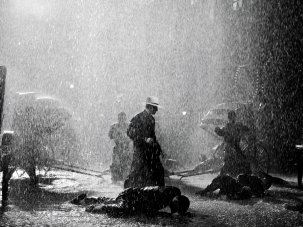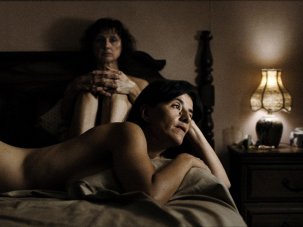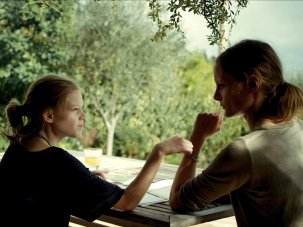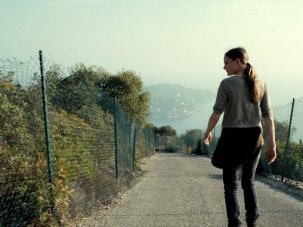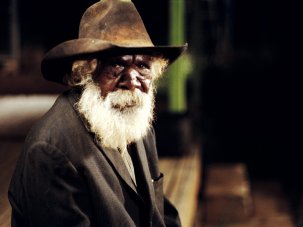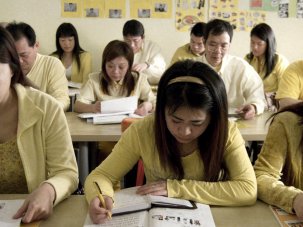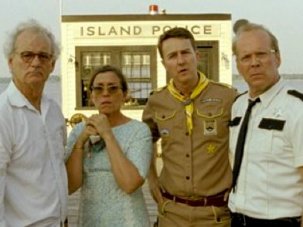Web exclusive

Butter on the Latch (2014)
When speculation about it is rife, the Berlin programme always seems a marvel. Conjecture is mostly based on nascent reputations, skimpy synopses and/or some kind of hunch. This is because Berlin always has so many unknowns buzzing like bees around the bear’s head.
It’s too easy to zone in on some of the soon-to-be-released big films, such as Wes Anderson’s magnificent wistful entertainment The Grand Budapest Hotel or George Clooney’s tale of the US Army and Nazi-looted art The Monuments Men (how could Berlin not play that?), and since Sight & Sound has already covered the former [in our new March issue, out tomorrow] and the word on the latter is not good, I’ll put them aside.
Another trustable approach is to get excited about what others have lauded in Sundance, on which basis I am pretty hyped up about Richard Linklater’s Boyhood, which, as well as very good word-of-social-media, has the novelty of having been shot over a number of years as its boy subject has grown up. I’m likewise keen to see the apparently innovative Nick Cave documentary 20,000 Days on Earth, Yann Demange’s ’71, about a British soldier in Northern Ireland during the Troubles who gets lost in hostile territory, Ira Sachs’s new work Love is Strange, which portrays a gay couple deep in middle age who get married but then find they have to live apart, and John Michael McDonagh’s Calvary, the palpable Sundance hit about which you may well already have read – though I’m trying not to find out too much because I don’t want it spoiled.
Go beyond that, though, and you’re in the not always safe hands of Berlin’s programmers and the film’s publicists. There’s a push behind Josephine Decker, a former documentarian (Bi the Way, 2008) who has two fiction features in the Forum section, Thou Wast Mild and Lovely and Butter on the Latch, which come with recommendations from the New Yorker and Film Comment.
I’m writing this having just seen the latter, which is not much like anything else and has an arresting indeterminacy both to its camera and editing styles and its emotional tenor. It’s about what happens when two former female friends get together at a real-life Balkan folk song-and-dance camp, but that barely describes a vivid aesthetic approach that likes to hover around things, have people dream performance art, ad-lib scenes and catch events obliquely. I’ll be trying to catch the other film – which was programmed up against Wes Anderson – but if I have one complaint about Butter on the Latch, dazzling though it is at times, it is that at times it all seems a little forced.
What one can say for sure is that there is the usual huge variety of material and that Berlin’s traditional preference for European political-issue-driven stories and LGBT films remains as proud as ever. There are strong showings from China, Korea and Japan across all the strands amongst which seems to be a lot of intriguing possibilities, but if I were to pick any out in advance I’d be playing the same game as everyone else.
I’ll be catching some of the new work from such festival mainstays as Rachid Bouchareb (Two Men in Town), Fruit Chan (The Midnight Affair), the now retired Tsai Ming-liang (Journey to the West), Denis Côté (Que ta joie demeure) and the eternal Alain Resnais (Aimer, boire et chanter – about a death amongst amateur dramatics fans). But if I was forced to answer what I am most looking forward to, it’s Corneliu Porumbiou’s The Second Game (in which he watches a certain important 1988 football match with his father, who was the game’s referee). And that’s only because he told me all about it in Bucharest last year, and it sounded really good.
In the March 2014 issue of Sight & Sound
Sundance: Around the world in 11 days
The indie magnet might be famous for its US-focused fare but this year’s best films had a truly international flavour. By Eric Kohn.
Rotterdam: The future is unwritten
Despite its successes, the festival needs to address the challenges posed by reduced budgets and dwindling industry influence. By Edward Lawrenson.
-
The Digital Edition and Archive quick link
Log in here to your digital edition and archive subscription, take a look at the packages on offer and buy a subscription.





